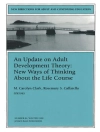This collection presents research-based interventions using existing knowledge to produce new pedagogies to teach evolution to learners more successfully, whether in schools or elsewhere. ‘Success’ here is measured as cognitive gains, as acceptance of evolution or an increased desire to continue to learn about it. Aside from introductory and concluding chapters by the editors, each chapter consists of a research-based intervention intended to enable evolution to be taught successfully; all these interventions have been researched and evaluated by the chapters’ authors and the findings are presented along with discussions of the implications. The result is an important compendium of studies from around the word conducted both inside and outside of school. The volume is unique and provides an essential reference point and platform for future work for the foreseeable future.
สารบัญ
1 Foreword; Kostas Kampourakis.- 2 The present status of evolution education; Ute Harms and Michael J Reiss.- 3 Evidence for the success of a quantitative assessment instrument for teaching evolution in primary schools in England; Loredana L. Buchan, Momna V. Hejmadi and Laurence D. Hurst.- 4 Learning about evolution in a cross-curricular session: Findings from a small-scale intervention study with pre-service primary school teachers; Berry Billingsley, Manzoorul Abedin, Keith Chappell and Chris Hatcher.- 5 Developmental progression in learning about evolution in the 5-14 age range in England; Terry Russell and Linda Mc Guigan.- 6 Teaching evolution along a learning progression: An Austrian attempt with a focus on selection; Jaqueline Scheibstock, Heidemarie Amon, Helene Bauer and Martin Scheuch.- 7 Inequitable foundations? Educational equality in evolution; Jaimie L. Miller-Friedmann, Susan E. Sunbury and Philip M. Sadler.- 8 Examining teaching assistants’ (TA) experiences facilitating traditional vs active learning-based tree-thinking curricula: TA perceptions, student outcomes, and implications for teaching and learning about evolution; Yi Kong, Nancy Pelaez, Trevor R. Anderson and Jeffrey T. Olimpo.- 9 Utility of context-based learning to influence teacher understanding of evolution and genetics concepts related to food security issues in East Africa; Timothy A. Goodale.- 10 Bridging the gap towards flying: Archaeopteryx as a unique evolutionary tool to inquiry-based learning; Alexandra Buck, Sofoklis Sotiriou and Franz X. Bogner.- 11 Overcoming motivational barriers to understanding and accepting evolution through gameful learning; David C. Owens.- 12 Using human examples to teach evolution to high school students: Increasing understanding and decreasing cognitive biases and misconceptions; Briana Pobiner, William A. Watson, Paul M. Beardsley and Constance M. Bertka.- 13 Models and modeling in evolution; Kathy L Malone, Anita M. Schuchardt and Zakee Sabree.- 14 Cultural diversity and evolution: Looking for a dialogical teaching perspective; Alma Adrianna Gómez Galindo , Alejandra García Franco , Leonardo Gonzáles Galli and José de la Cruz Torres Frías.- 15 Transforming a college biology course to engage students: Exploring shifts in evolution knowledge and mechanistic reasoning; Lisa O. Kenyon, Emily M. Walter and William L. Romine.- 16 Improving student understanding of randomness and probability to support learning about evolution; Ute Harms and Daniela Fiedler.- 17 Evolution learning and creationism: Thinking in informal learning environments; Jorge Groß, Kerstin Kremer and Julia Arnold.- 18 Using object-based learning to support teaching and learning about biological evolution: a case study at the Grant Museum of Zoology; Jo Nicholl and Paul Davies.- 19 What now for evolution education?; Michael J. Reiss and Ute Harms.- 20 Index.
เกี่ยวกับผู้แต่ง
UTE HARMS is Director at the Leibniz Institute for Science and Mathematics Education (IPN), Full Professor for Biology Education at the University of Kiel (Germany) since 2007, and Fellow of the Royal Society of Biology (Great Britain). She owns a Ph D in Cell Biology and has worked as a high school teacher for several years. In 2000 she got her first Professorship for Biology Education at the Ludwig-Maximilians-University in Munich (Germany). From 2006 to 2007 she held a chair in Biology Education at the University of Bremen. Her main research interests are conceptual learning in biology and in science focusing on evolution and energy, biology teacher education, biology related competitions and transfer of contemporary topics in the Life Sciences to the public.
Michael Reiss is Professor of Science Education at UCL Institute of Education, University College London, Visiting Professor at the Universities of York and Kiel and the Royal Veterinary College, Honorary Fellow of the British Science Association, Docent at the University of Helsinki and a Fellow of the Academy of Social Sciences. After undertaking a Ph D and post-doctoral research in evolutionary biology and population genetics, he trained to be a science teacher and taught in schools for five years before returning to higher education. The former Director of Education at the Royal Society, his academic interests are in science education, bioethics and sex education and he has published widely on issues to do with creationism in schools.












